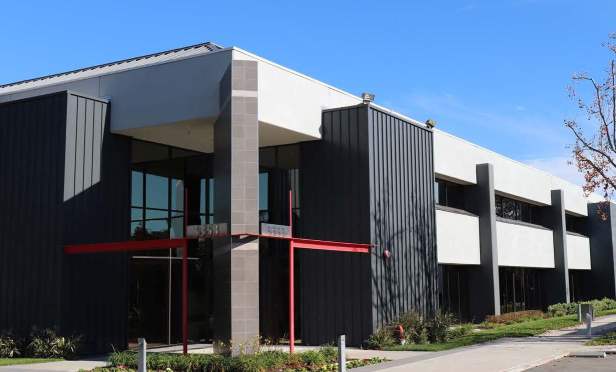 Shockwave Medical Inc.'s new space is in an adjacent building to its current 35,000 square feet.
Shockwave Medical Inc.'s new space is in an adjacent building to its current 35,000 square feet.
SANTA CLARA, CA—Silicon Valley space constraints are real, but firms are continuing to carve out adjacent square footage to keep workflow rolling without interruption. One of those expansions was undertaken by Shockwave Medical Inc.
The restructure and expansion of Shockwave's headquarters represents a larger footprint by some 50,200 square feet at 5353 Betsy Ross Dr. The new space is in an adjacent building to Shockwave's current 35,000 square feet at Great America Tech Center.
Shockwave plans to make significant capital improvements to the property that houses its research and development, assembly and offices, with room to continue its growth trajectory. The newly public firm specializes in the interventional treatment of advanced cardiovascular disease.
Transwestern Commercial Services senior vice president David Klein provided occupier solutions services for Shockwave.
"Shockwave was locked into a short-term sublease that couldn't sustain its growth or its technical requirements," said Klein. "But like many R&D companies, a move would have presented a major disruption to its business. In restructuring and expanding its lease, we were able to secure excellent growth opportunity and financial benefits for Shockwave with minimal business interruption."
Klein is a core member of Transwestern's life science team in Northern California. This transaction earned SIOR Northern California chapter's top R&D/Flex deal of the year for three years in a row.
The San Francisco Bay Area biotech/life sciences market began 2019 solidly, but investors and tenants may see a flattening of the market leading into 2020, according to a recent Transwestern report. Leasing velocity is down, while in-place lab vacancy increased due to delivery of new product that was not fully leased. Venture capital funding also had a slow start to 2019 with just $2 billion in total capital invested (45.8% decrease), while National Institutes of Health grants for Bay Area research made up just 37.7% of the total grant dollars coming into California (330 bps below 2018). Mid-size biotech/life science companies have options for availability throughout the region, while small companies still struggle to find quality existing lab improvements in a competitive market.
"In today's constrained Silicon Valley market, the challenge that growing firms face is securing flexible, contiguous expansion space without a corresponding rent premium. Transwestern was successful in accomplishing this objective," Klein tells GlobeSt.com.
© Touchpoint Markets, All Rights Reserved. Request academic re-use from www.copyright.com. All other uses, submit a request to [email protected]. For more inforrmation visit Asset & Logo Licensing.







